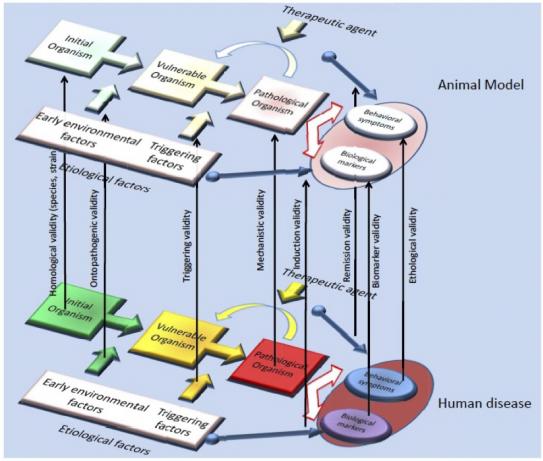Jun 16, 2021
Construct Validity in Psychology and Psychiatry
- 16:00 to 17:30
- Seminar
- Max Planck Research Group (Biomedical Sciences)
- Kenneth Schaffner
This presentation will review two different approaches to construct validity, a key concept in the evaluation of hypothetical entities and empirical tests in psychology and psychiatry. The main focus of this talk is on psychiatric construct validity, initially proposed by Robins and Guze in 1970 as “diagnostic validity,” and then further developed by Kendler and others from 1980 through 2009. This method also became the main approach to disorder evaluation related to DSM-5 and to its emerging successor DSM-5.1. This evaluational paradigm, however, has recently been questioned as too constraining and unable to permit alternative approaches such as dimensional disorders. Psychological construct validity, also presented here in a briefer analysis, and which may best be termed “psychometric construct validity,” had its origin in a famous article by Cronbach and Meehl in 1955, but initially was hampered by its commitment to the “nomological net” borrowed from logical empiricism. In the ensuing years, this constraint was relaxed as a more systemic reasoning approach emerged in the 1990s and early and mid-2000s. Oddly, these two approaches to construct validity have proceeded on essentially separate tracks, with virtually no cross-communication or use of the alternative approach. The presentation closes with some suggestions for a synergistic interaction of these two forms of construct validity.

Source: Belzung and Lemoine Biology of Mood & Anxiety Disorders 2011, 1:9.
Kenneth F. Schaffner is Distinguished University Professor Emeritus, University Professor of Philosophy, Psychology, and Professor of Psychiatry (secondary) at the University of Pittsburgh.
- Lara Keuck
- Steeves Demazeux
Contact and Registration
The seminar series is open to all. To receive the zoom link, please email Lara Keuck (officekeuck@mpiwg-berlin.mpg.de).
About This Series
This research seminar is hosted by the Bordeaux-Berlin Working Group on Translating Validity in Psychiatric Research and brings together historians, philosophers, psychiatrists and biomedical researchers.
